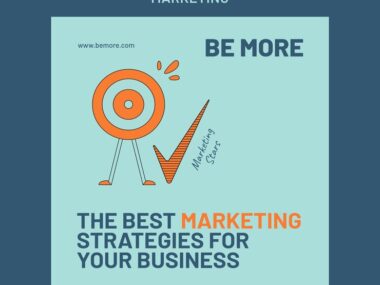
In today’s competitive job market, career development is more crucial than ever. Whether you’re starting your career or looking to advance, strategic planning and continuous learning are essential. This article provides actionable tips to enhance your career development journey, empowering you to achieve your professional goals.
Setting Clear Goals
Successful career development begins with setting clear and achievable goals. Define where you want to be in one year, five years, and beyond. Establishing specific, measurable objectives provides a roadmap for your career path. For instance, aim to acquire new skills, earn certifications, or reach a leadership position within your industry.
Continuous Learning and Skill Enhancement
Continuous learning is key to staying relevant in today’s rapidly evolving job market. Seek opportunities to expand your skill set through workshops, online courses, or professional certifications. Acquiring new skills not only enhances your capabilities but also demonstrates your commitment to personal and professional growth. Stay informed about industry trends and technological advancements to remain competitive.
Networking and Building Relationships
Networking plays a pivotal role in career development. Cultivate relationships with colleagues, mentors, and industry professionals. Attend networking events, join professional associations, and engage in online communities relevant to your field. Building a strong professional network provides access to job opportunities, industry insights, and valuable advice.
Personal Branding and Online Presence
In the digital age, your online presence is crucial for career advancement. Develop a professional presence on platforms like LinkedIn, showcasing your skills, achievements, and career aspirations. Share insightful content, participate in industry discussions, and connect with professionals in your field. Your online profile serves as a powerful tool for recruiters and employers seeking top talent.
Effective Resume and Cover Letter Writing
Crafting a compelling resume and cover letter is essential for making a strong first impression. Tailor your resume to highlight relevant skills and experiences that align with the job you’re applying for. Use active verbs to describe your accomplishments and quantify your achievements whenever possible. Your cover letter should complement your resume by conveying your enthusiasm and suitability for the role.
Embracing Challenges and Seeking Feedback
Embrace challenges as opportunities for growth. Volunteer for projects that expand your skills and knowledge. Seek feedback from supervisors, colleagues, or mentors to identify areas for improvement. Constructive criticism helps you refine your abilities and enhances your professional development. Demonstrate resilience and adaptability in overcoming obstacles.
Goal-Oriented Time Management
Effective time management is crucial for achieving your career development goals. Prioritize tasks based on their importance and deadlines. Break down large projects into manageable steps to maintain momentum and productivity. Set realistic deadlines and hold yourself accountable for meeting them. Establishing a routine that balances work responsibilities with personal development activities promotes long-term success.
Navigating Career Transitions
Navigating career transitions requires agility and foresight. Whether switching industries or pursuing a new role within your current organization, conduct thorough research and assess potential challenges and opportunities. Update your skills, network with professionals in your desired field, and leverage transferable skills from your previous experiences. Embrace flexibility and adaptability to thrive in new environments.
Mentoring and Continuous Improvement
Engage in mentoring relationships to gain valuable insights and guidance from seasoned professionals. Mentors can offer career advice, share industry knowledge, and help you navigate challenges. Actively seek opportunities for mentorship within your organization or professional networks. Additionally, prioritize continuous improvement by regularly assessing your career goals, refining your skills, and adapting to industry trends.
Conclusion
Career development is a lifelong journey that requires dedication, strategic planning, and continuous learning. By setting clear goals, expanding your skill set, building a strong network, and enhancing your online presence, you can navigate the evolving job market with confidence. Embrace challenges, seek feedback, and maintain a goal-oriented approach to achieve professional success and fulfillment. Invest in your career development today to create a rewarding and impactful future.





